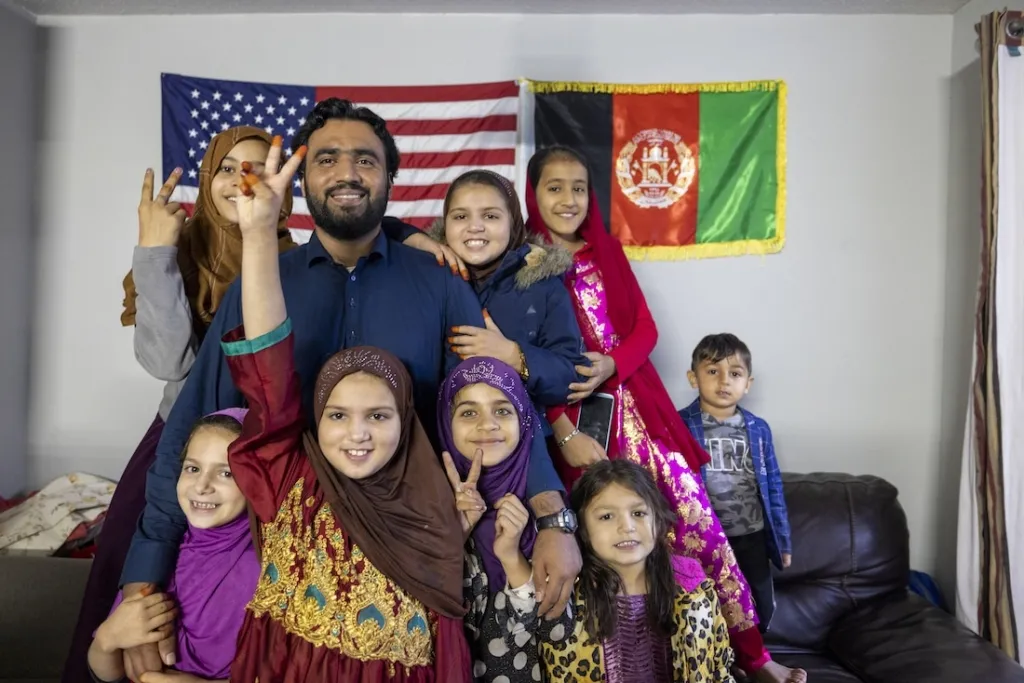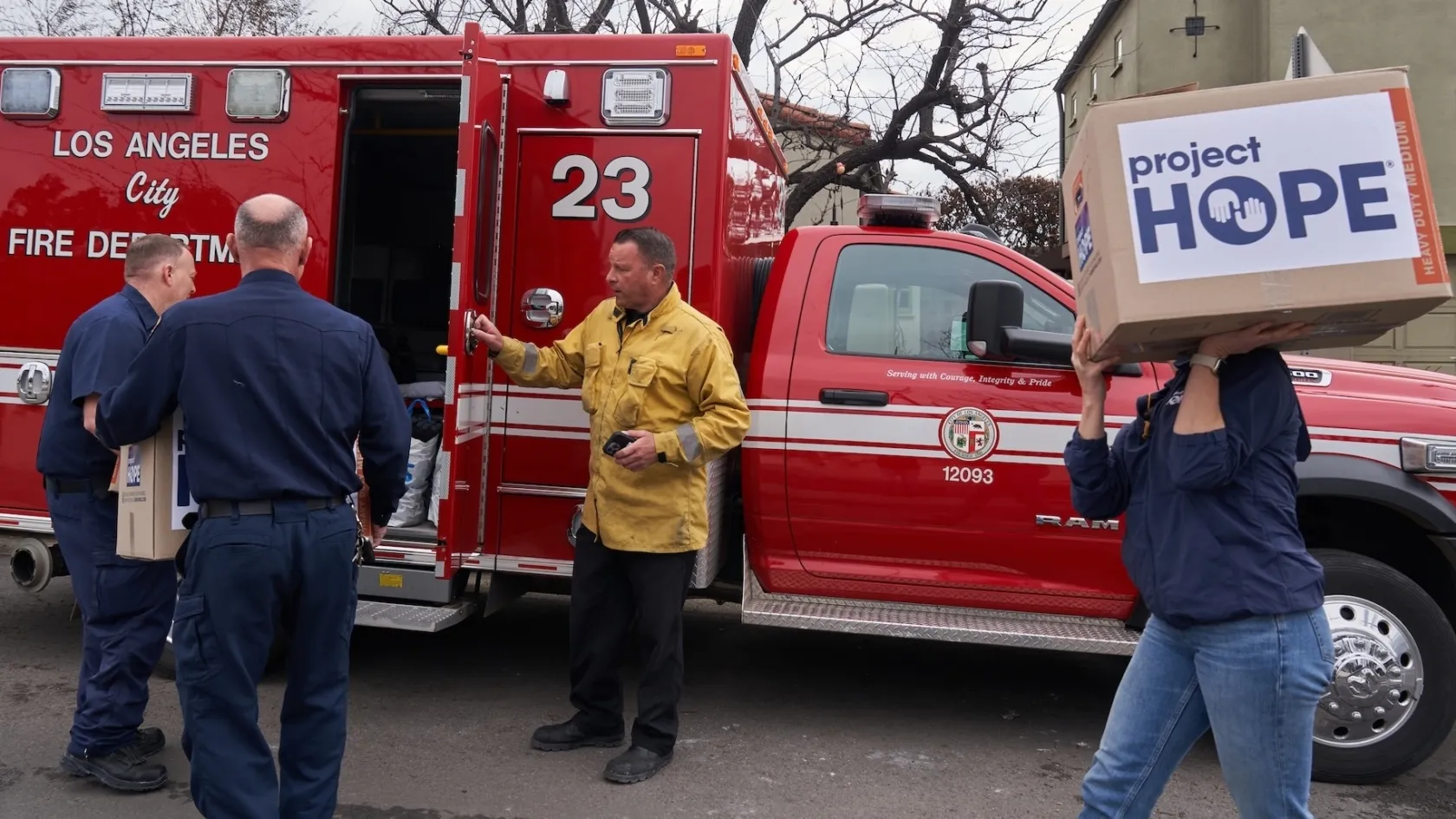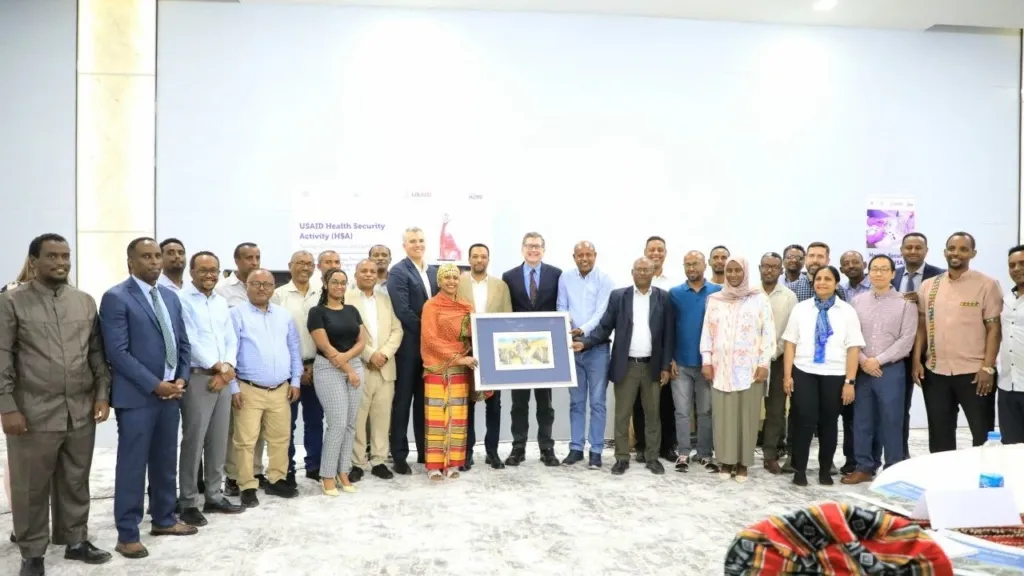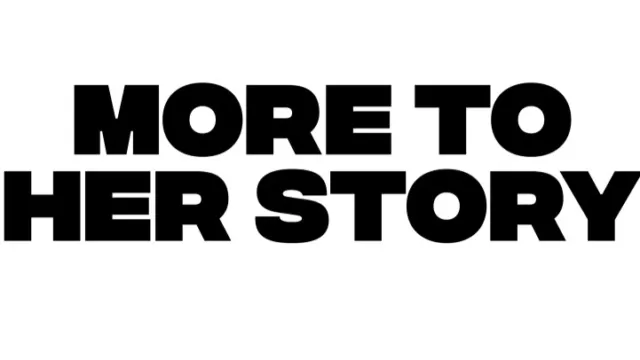The Day Displacement Changed My Life
In honor of World Refugee Day, hear from four refugees on how displacement upended their lives and the breadth of challenges that come when you’re forced to seek safety.
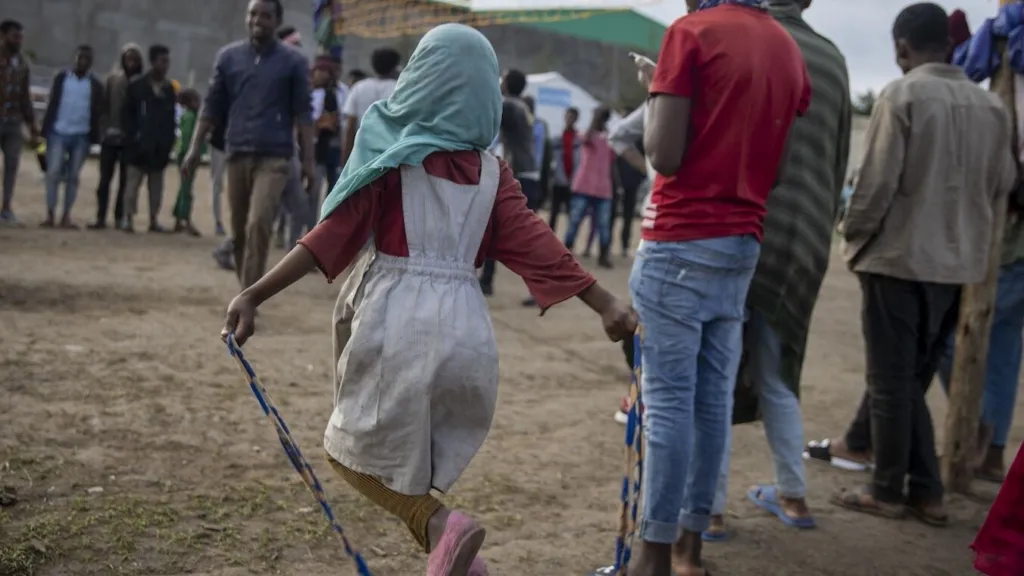
More than 108 million people are forcibly displaced around the world — a record number that’s on a dramatic rise due to conflict and persecution. One in every 74 people worldwide has been forced to flee, and each of their stories is unique.
There is no one “refugee” story: every person facing displacement carries their own experience. Yet, there are shared experiences among those who have been forced to seek safety. Health care is harder to find. Mental health challenges increase. Discrimination is widespread.
Project HOPE is helping improve access to health care and social services for refugees, internally displaced people, and asylum seekers worldwide. In honor of World Refugee Day, here are four of their stories about how the trauma of sudden displacement upended their lives, and the incredible challenges that awaited them.
Maita, Colombia
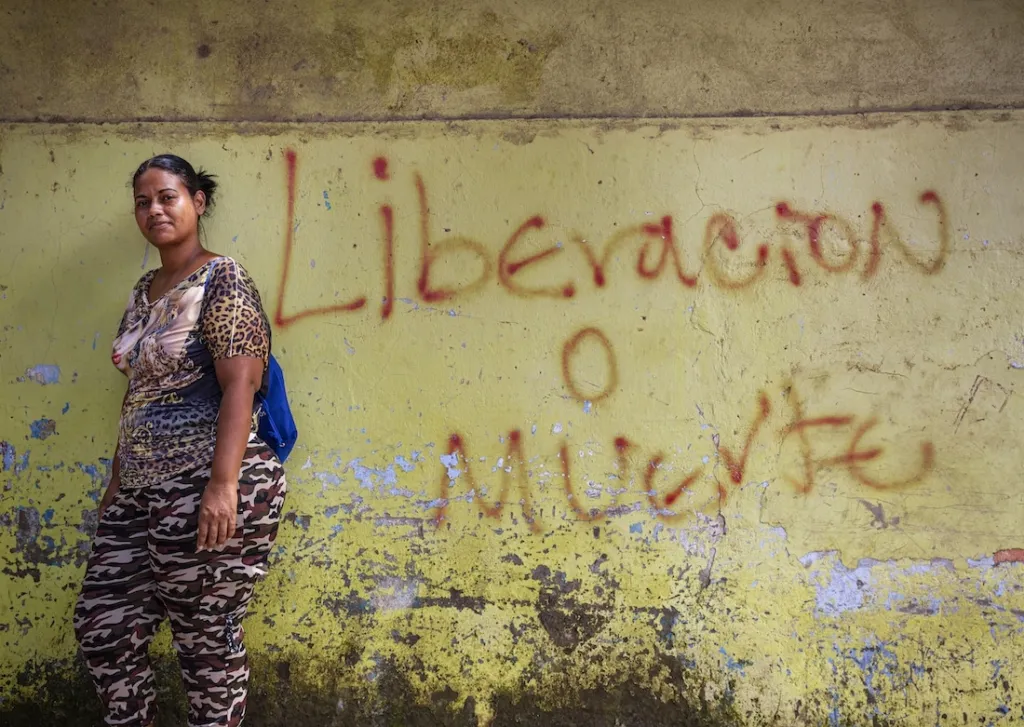
Maita* became a refugee when she lost her home in Venezuela and was forced to seek safety in Colombia. Now she volunteers with a local organization Project HOPE supports that connects Venezuelan women who are pregnant to support groups and maternal care throughout pregnancy and delivery. Maita walks around the La Parada community, knocking on doors to find women and connect them to the group where they receive maternal health resources and a community.
“I’ve been here for four years. I used to live in Venezuela, but lost my house. Some people broke in and told me to get out. I walked for six days to the border with my husband and our three children. We had to put our baby on my shoulders because she couldn’t walk anymore. It was very hard. Everyone was carrying a small bag. We carried two younger kids in a wagon and the older one was on my husband’s shoulders.
“I am unemployed here. My husband and I work together carrying things over the bridge for people. We make between 20,000 and 30,000 pesos [about $7] per day. With the wagon you can carry more, but our wagon was lost in the river yesterday. My children cannot go to school because I don’t have any documents. I’m expecting some papers so they can get in the schools.
“I used to live in a field where we would camp. Around then, Alejandra [from Project HOPE’s local partner in Colombia, CMDyM] started asking me if I knew any girls. I started talking to everyone. I started looking for them.
“I live in a place where there is no law — there is no education, no police, nothing. There are a lot of bars and a lot of prostitutes. There are a lot of young girls between 15 and 17 years old. I try to tell them, ‘You should go to this workshop. I highly recommend it for you.’ I’ve found at least 300 women or more, on both sides of the border, Venezuela and Colombia.
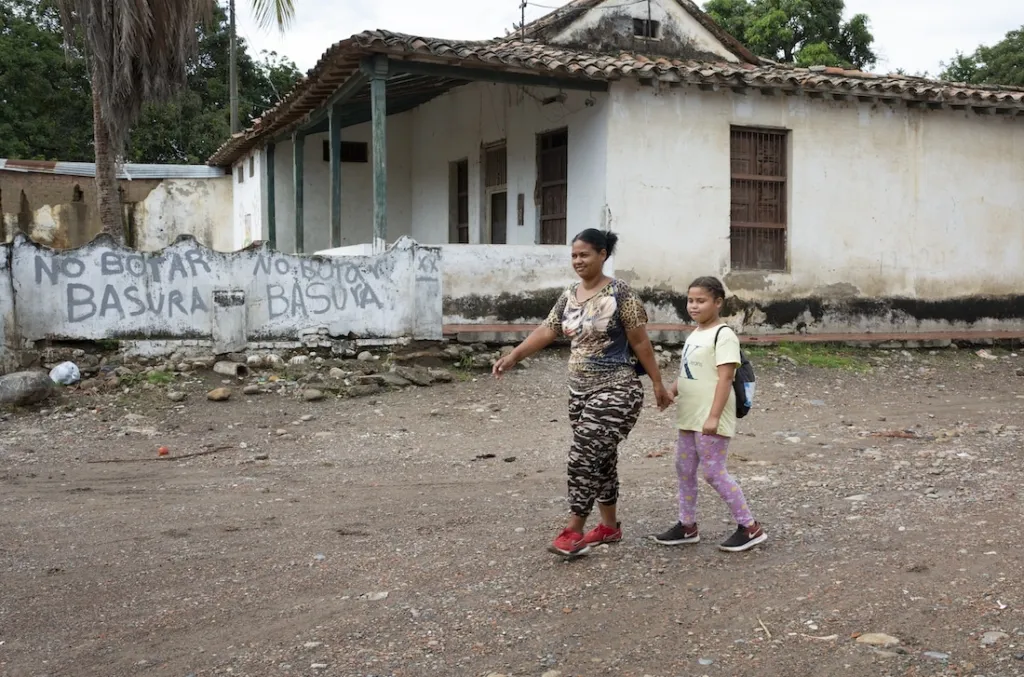
“It can be hard to convince them to go at the beginning. The women feel scared because they think they’re going to take their baby away. Then they can see that they’re helping, they give them medication, they can go to the doctor, they receive vitamins, and then it’s easier.
“Some of the girls we see are as young as 12. Almost always when you ask them what they need, they say food. Sometimes they say they used to work but now they can’t or the money’s not enough so they don’t eat. Or they work and use the money to pay rent.
“Many people think that these women come here from Venezuela because they want to. It’s not true. Some people come because they don’t have food. Some cases are like mine where they lost their home. Many people come here expecting to find new opportunities, new jobs, medication, food, and things like that. They come hoping everything will be better.”
“Many people think that these women come here from Venezuela because they want to. It’s not true … They come hoping everything will be better.”
Oksana, Ukraine
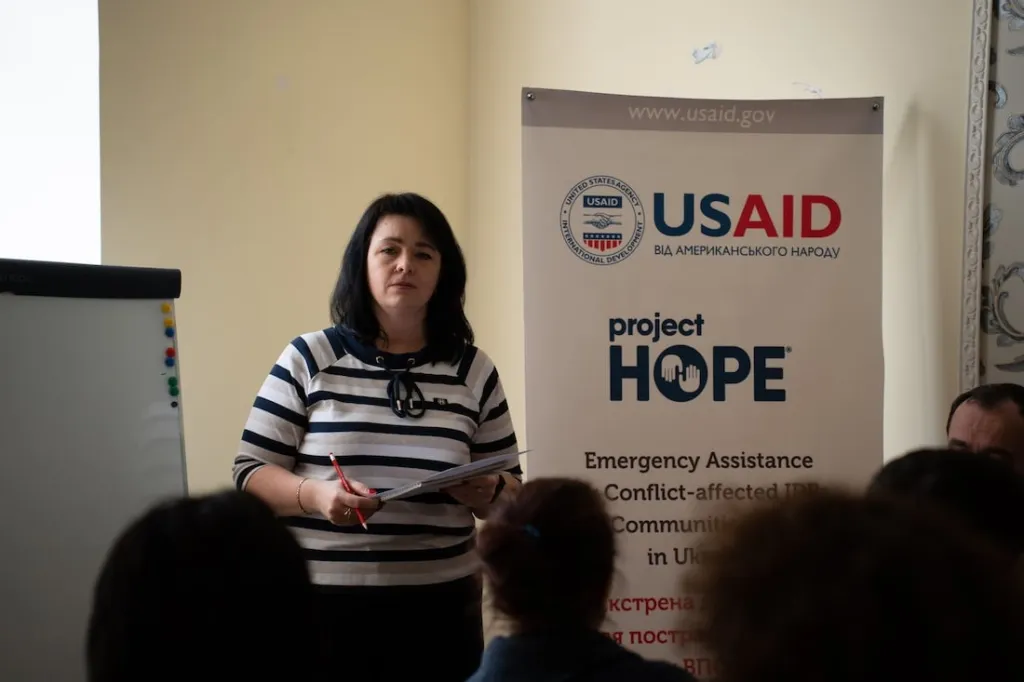
Oksana fled from Mariupol, Ukraine during Russia’s invasion and resettled in Odesa. There, she began volunteering with Project HOPE to work with children and teach business language courses for adults.
“It is very, very difficult for displaced persons. Mariupol is on the front lines, and I worked there with displaced children in school starting in 2014. I thought that I completely understood them. Only when I left the city myself did I realize that I had no idea what those people really felt and went through.”
Learn more about Oksana’s story:
Ayana, Ethiopia
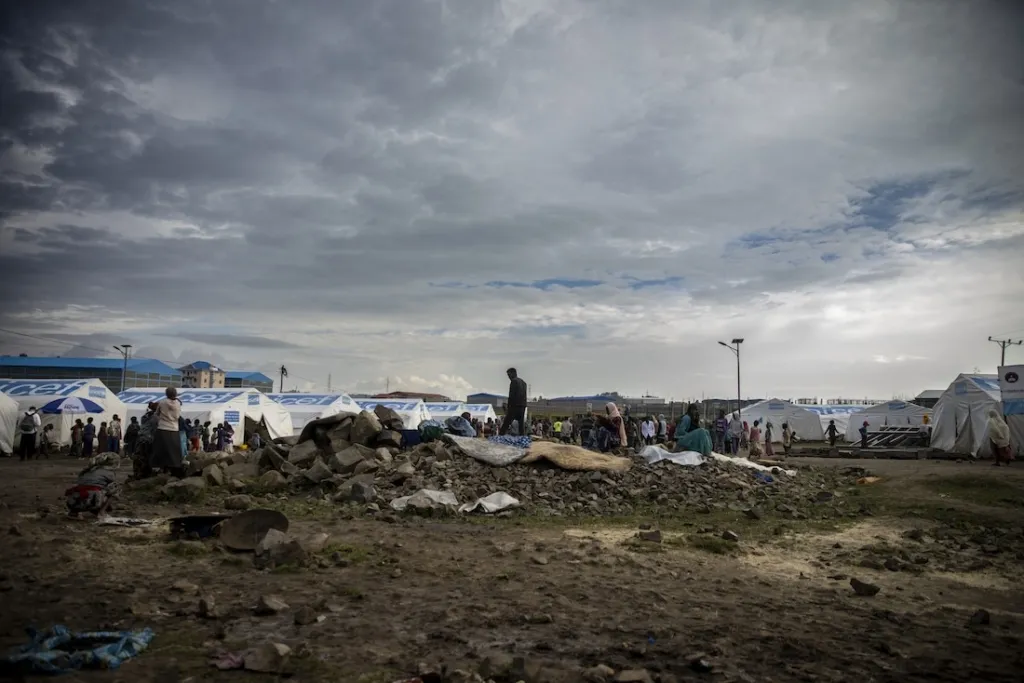
In 2022, 25-year-old Ayana* fled with her family from their small village due to the presence of armed groups and conflict near their home in Oromia, Ethiopia. They lost everything, she says, including the farming tools they used as their only means of earning a living. Out of options, Ayana and her family used various means of transportation — including walking over long distances — to finally end up in Woinshet Camp for internally displaced people in Debre Birhan. Project HOPE provides health assistance in the camp and also connected Ayana to a local partner for further support for mental health.
“After I arrived in the camp, I became sick for more than six months before I was able to get the necessary laboratory test. The Project HOPE mobile health and nutrition team came to me, counseled me, and drove me from the camp to the hospital to get saliva and blood tests for TB and HIV. I tested positive and was able to start on medications.
“Due to my chronic health status, I have swelling on my left leg and am not able to walk or support my single mom in doing household chores. I am forced to depend solely on the strength of my mom for hygiene supplies and to access anything to eat.
“I have never gotten nutritious food assistance from the camp. We only get one cup of wheat flour per family, which is too inconsistent and not enough food to take with my medicine, which was the advice of Project HOPE’s medical team. I don’t want to disclose my HIV/AIDS status, especially to my mom. Living in an environment that discriminates me because of my positive status is a critical concern for my safety.
“I am sleeping on a torn-down mattress and have no access to items for drinking and eating. My mom lives with me, but she is not able to accommodate what I need. We share the same blanket and shelter when it gets cold.
“The drinking water shortage is critical. I am in dire need of food, nutrients, non-food items, and separate shelter until my health status improves. I have only one regret, which is that I am not able to support myself and my mom since I am not able to walk. I wish my mom could be healthy and have a peaceful life in the future where we can return to our hometown.”
“I have only one regret, which is that I am not able to support myself and my mom since I am not able to walk. I wish my mom could be healthy and have a peaceful life in the future where we can return to our hometown.”
Kalil, United States
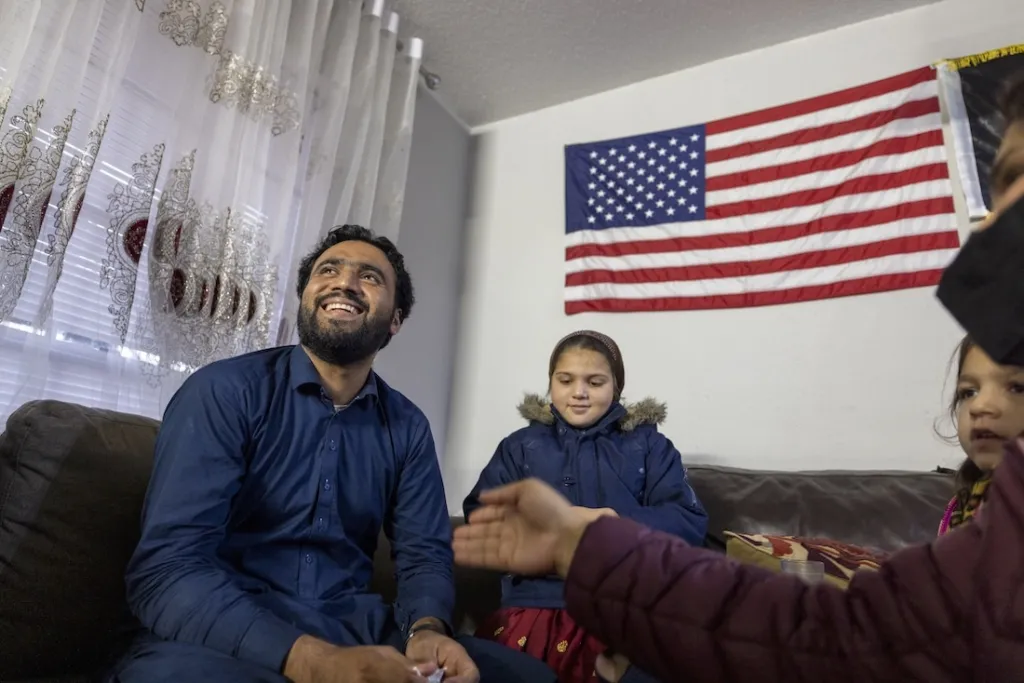
Kalil* is a former Afghan soldier who arrived in the U.S. in 2021 as a refugee after the fall of Kabul to the Taliban. He resettled with his family in Houston, where he lives in an apartment complex comprised of about 75% Afghan refugees. Project HOPE partnered with San Jose Clinic, a charitable clinic in Houston, to hire community health workers like Jacqueline to go door-to-door in the community, build trust, and convince people to get vaccinated to protect themselves against COVID-19. Thanks to her persistence, Kalil and his family were vaccinated in their home.
“My family was here a year before me. My wife and I came in September 2021. When the Taliban situation happened, we had to come here. I had helped the U.S. Army, so they helped me get here.
“While we were in Afghanistan, they sent us to this big open area. We wanted to get out of there because we were scared to stay. But at the same time, we were having mixed feelings. What’s going to happen? Where are they taking us? Where are we going to go? What if we face trouble? How are we going to face it? We didn’t have anything. What would save us? We didn’t have any clue what was going to happen to us. Maybe we were going to live, or not.
“It was a really rough period of time. We slept on the ground at the airport for eight nights. We were asking other families there who was missing, and unfortunately a lot of families were split apart and missing people. Some people couldn’t make up their mind to leave or not. We stayed at night because the jets were full of like 600 to 800 people and they were taking too long. We were scared because we wanted to get out. Every person has a different story. It was a really rough time. We never ate anything. It was a bad time. Everything in my mind is like a movie. It’s like a drama or a movie, but I saw it with my own eyes.
“Every person has a different story. It was a really rough time. We never ate anything. It was a bad time. Everything in my mind is like a movie. It’s like a drama or a movie, but I saw it with my own eyes.”
“We flew from Kabul to Qatar, spent one night in Qatar, then went from Qatar to Germany. We were there six days, then from there we went to Washington, and then New Mexico. We didn’t have any [visa] status when we were in the emergency situation. They put us on a plane. That’s why I feel very blessed. It saved my life.
“While I was in Afghanistan, I was so worried because my family was here. And I didn’t think I had any chance because I didn’t have anything. I didn’t have a car, so how was I going to travel? Now I feel very safe and secure. Now I’m with my family. I’ve almost forgotten about the tough times because God helped me.
“The kids are in school, so when we heard the vaccine was available for kids and it was safe for them to have it, we wanted them to be safe. Since you were able to do it here in our home it was very convenient. We feel safe with the kids getting the vaccine because we’ve also had it. We are comfortable with it. We are very relaxed and more comfortable now that they’ve gotten it.
“We are really happy here. In Afghanistan, the kids didn’t have a good education. Here, the law, the education, the benefits, and security are all better. So that’s why we love being here. We feel secure. We are so blessed. We are so glad we don’t have any issues. The things we have are more than enough and we feel blessed.”
